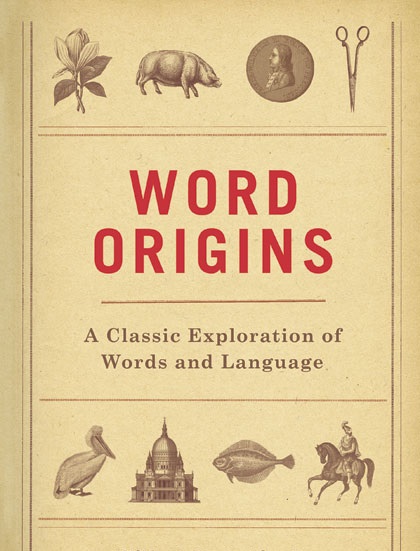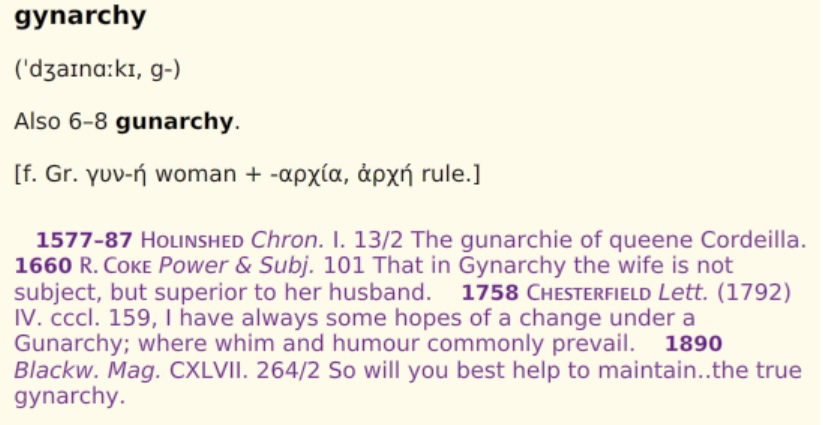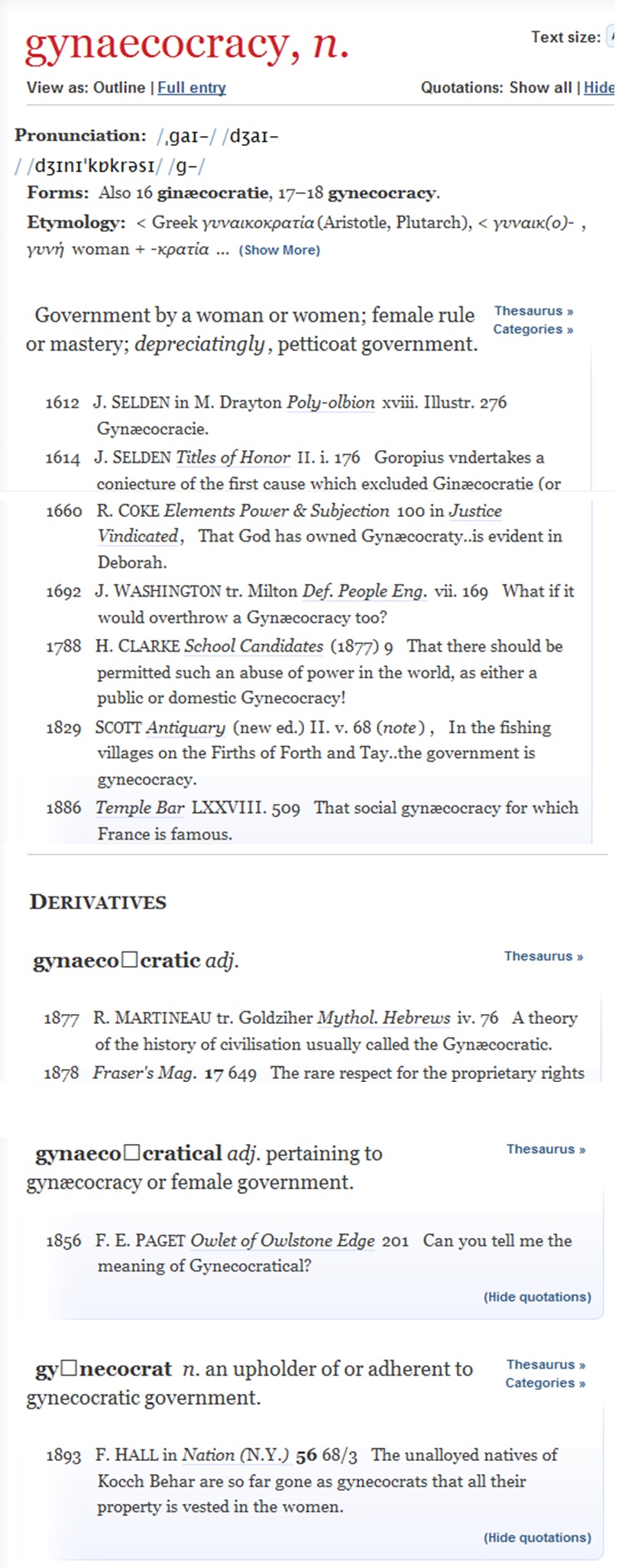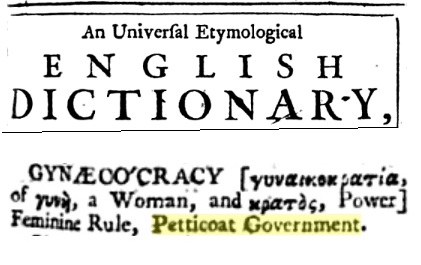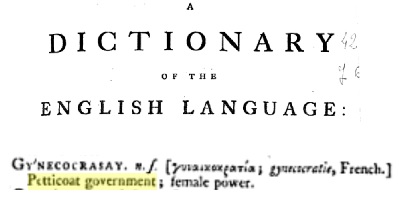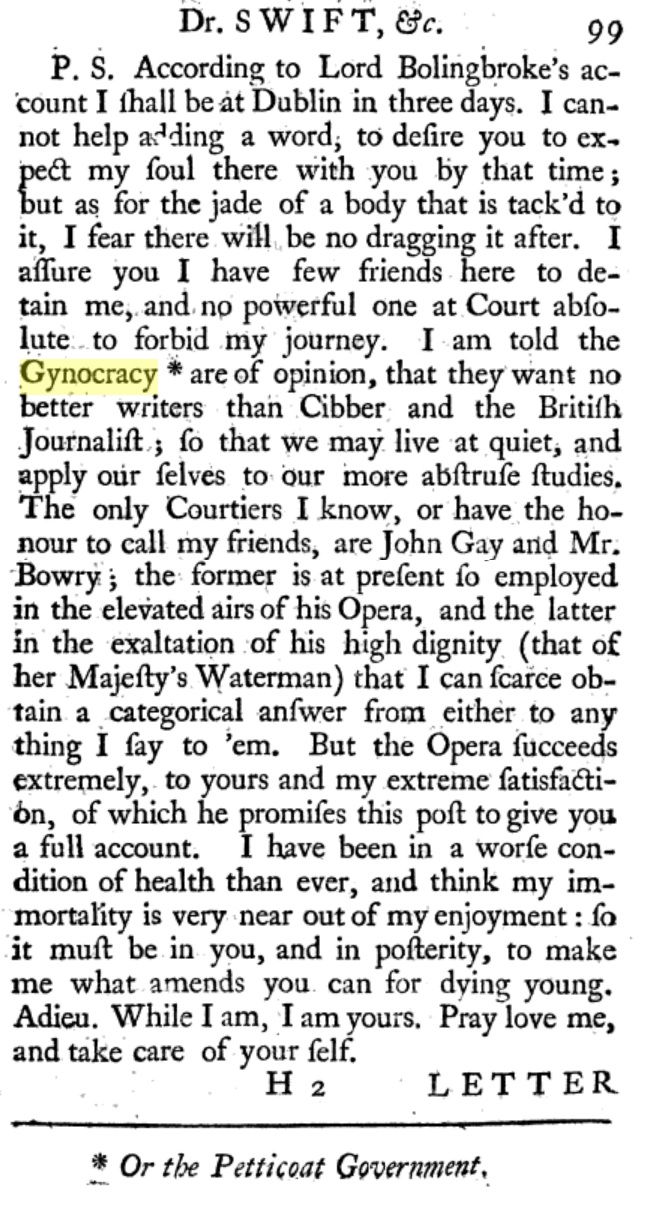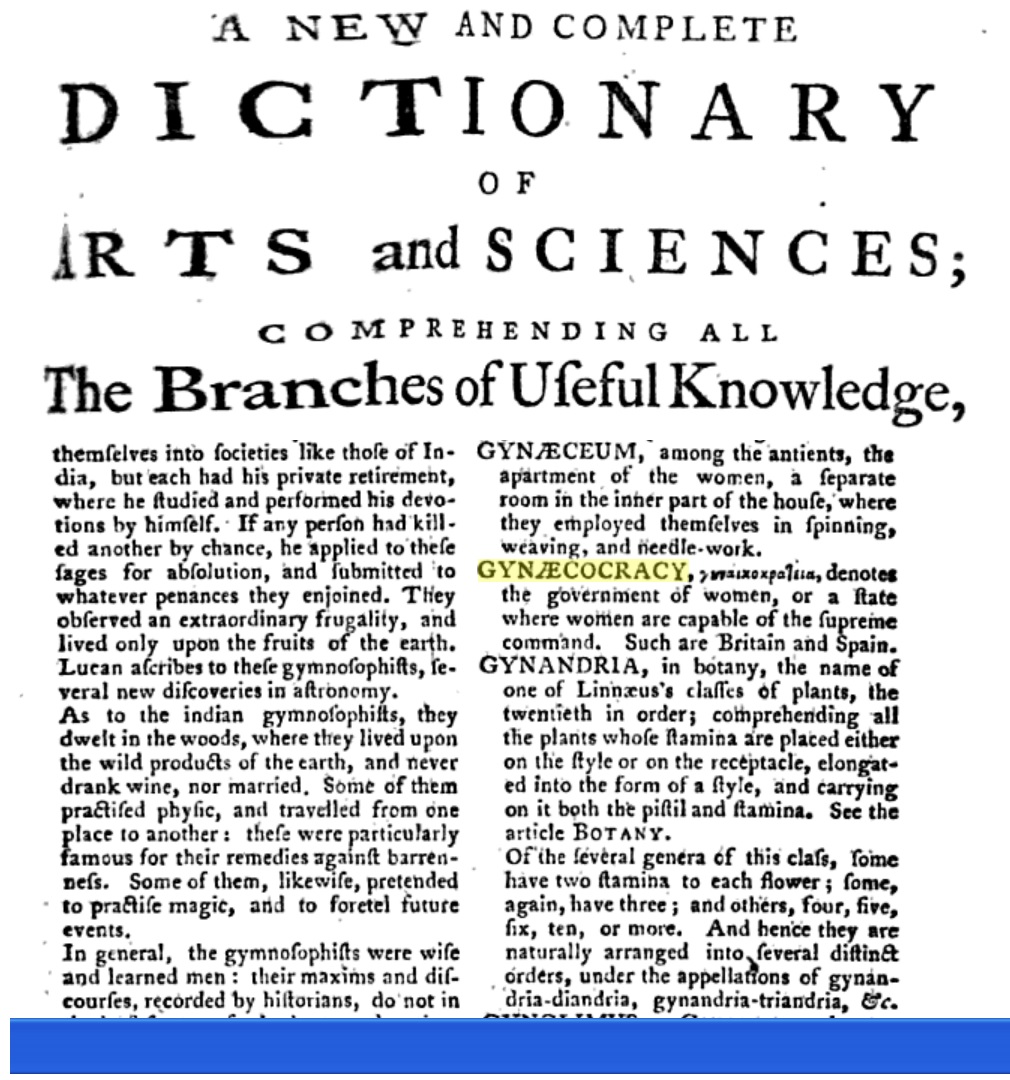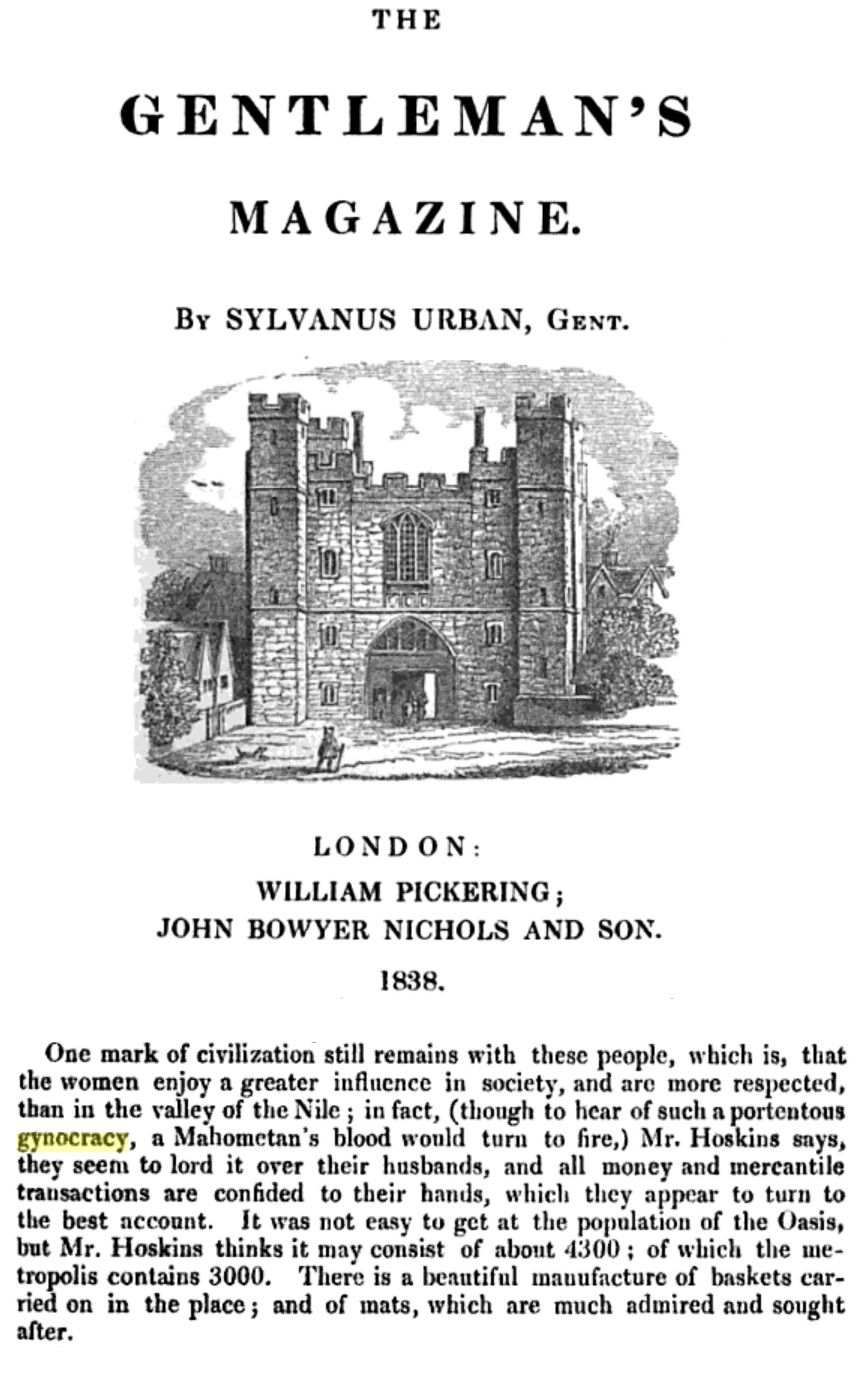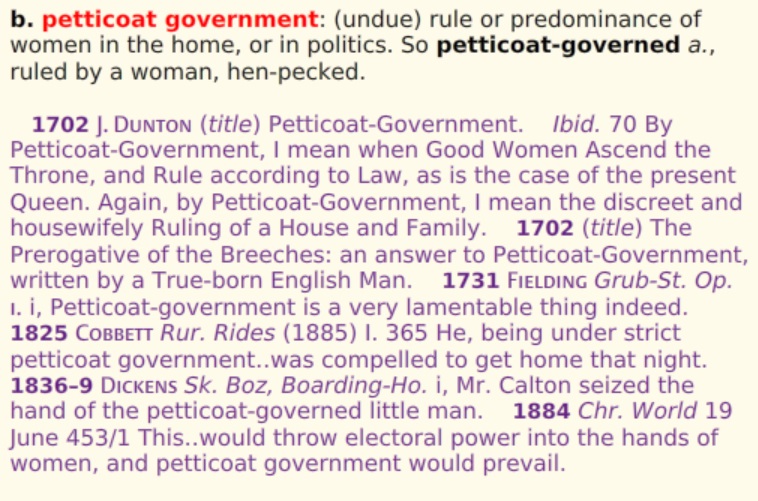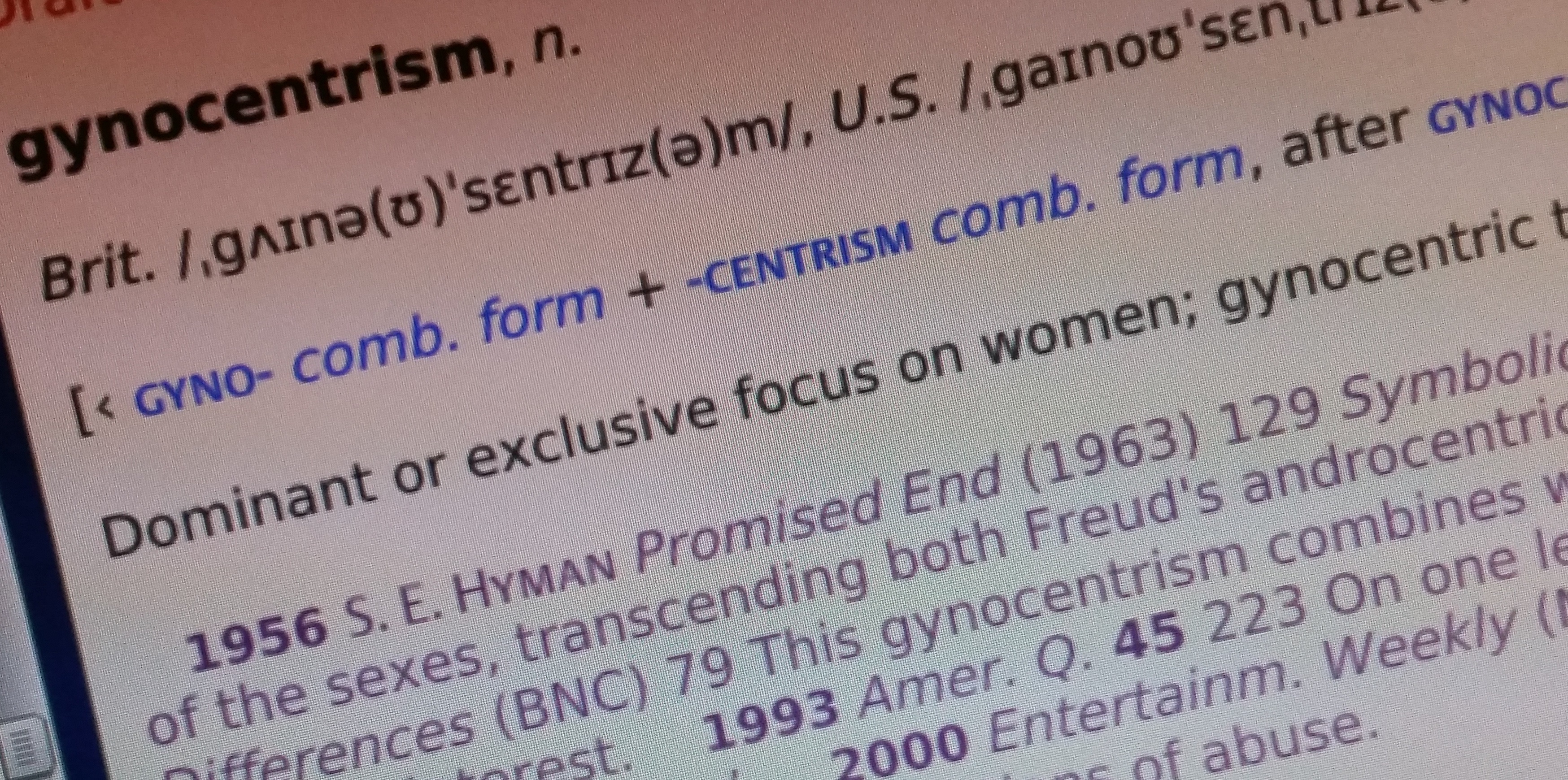
1. GENERAL DEFINITION OF GYNOCENTRISM (Greek: “female” + Latin: “centrum”)
(a). n. Dominant or exclusive focus on women in theory or practice; or to the advocacy of this. Often practiced to the detriment of males.
(b). n. A dominant focus on women’s needs and wants relative to men’s needs and wants. This can happen in the context of academic research, institutional policies, cultural conventions, and in gendered relationships.
(c). adj. Anything can be considered gynocentric when it is concerned exclusively with a female (or specifically a feminist) point of view.
2. SOCIOLOGY
(a). A pervasive cultural complex geared to prioritizing women and their interests.
(b). A reference to individual gynocentric acts or events (eg. Mother’s Day).
3. BIOLOGY
(a). The biological theory that humans prioritize female reproductive capacity.
4. PSYCHOLOGY
(a). An exclusive focus on the psychological experiences, emotions, needs and wants of women.
(b). Gynocentrism refers to a female expression of narcissism operating within the limiting context of heterosexual relationships and exchanges.
____________________________
DICTIONARY DEFINITIONS:
ALLWORDS.COM
Gynocentrism: An ideological focus on females, and issues affecting them, possibly to the detriment of non-females. Contrast with androcentrism.
MIRRIAM-WEBSTER
Gynocentrism: Dominated by or emphasizing female interests or a female point of view.
DICTIONARY.COM
Gynocentrism: Focused on women; concerned with only women.
OXFORD DICTIONARY
Gynocentrism: centred on or concerned exclusively with women; taking a female (or specifically a feminist) point of view.
FARLEX DICTIONARY
Gynocentrism: Female-oriented, -centered, -exclusiveness. Sexism , discrimination on the basis of sex.
ENCYCLOPEDIA.COM
A radical feminist discourse that champions woman-centered beliefs, identities, and social organization.
EARLIEST MENTIONS OF GYNOCENTRISM
Etymology dictionaries do not record the history and earliest usage of the term gynocentrism. My own search reveals that gynocentrism has been in use since at least as early as the 1800s. Here are a few early references to gynocentrism and gynocentric:
_______________________________________________________
The Open Court, Volume 11 (Open Court Publishing Company, 1897)

Women’s Franchise Newspaper (New Zealand, Thurs 26 November 1907)
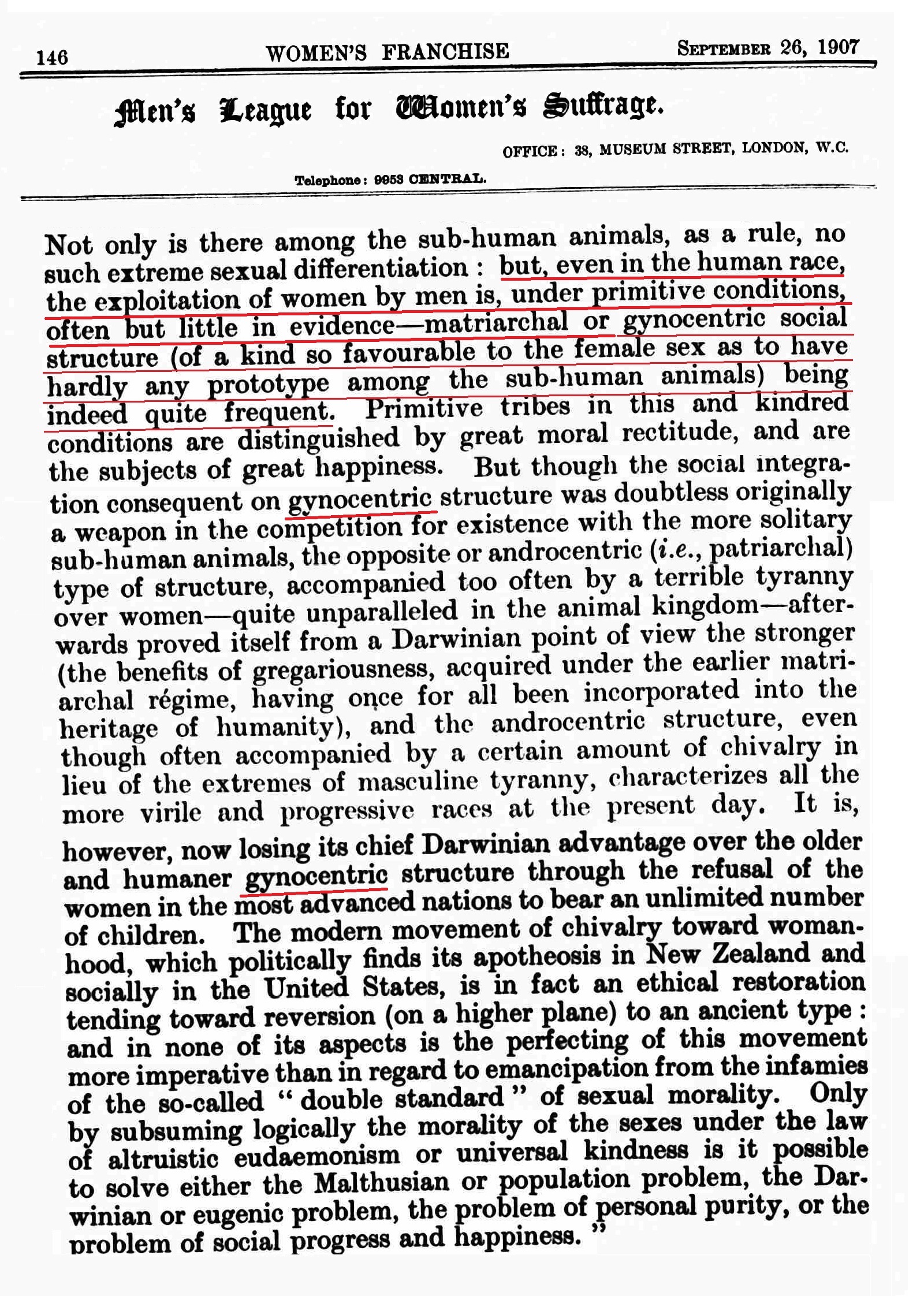
The Independent, Volume 67, Issues 3175-3187 (Independent Publications, incorporated, 1909)
![]()
Sheffield Daily Telegraph – (Thurs 23rd November 1911)
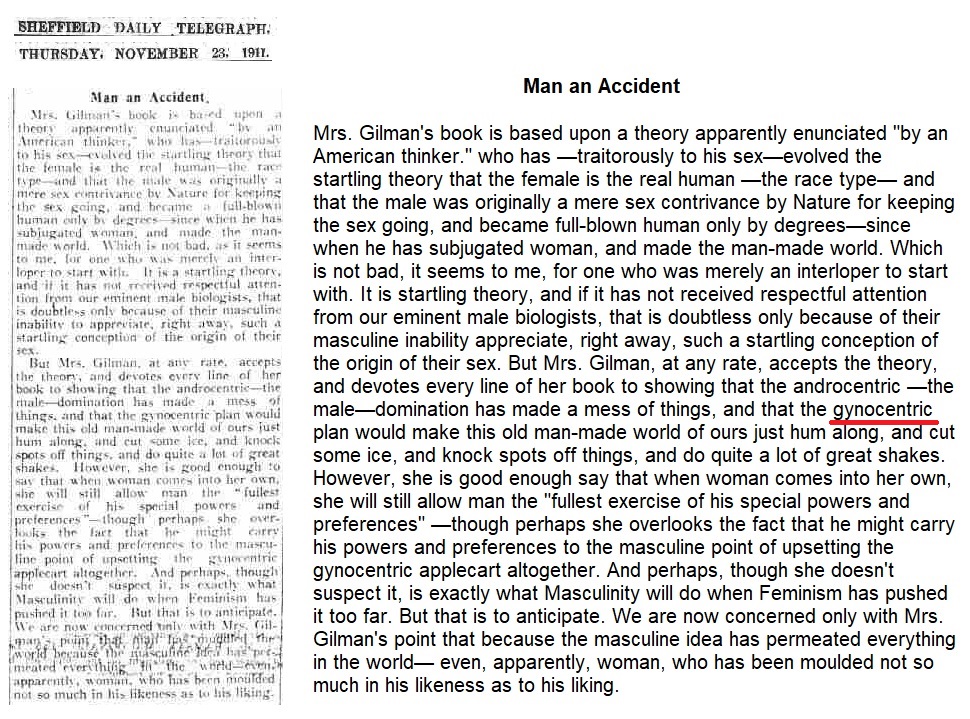
From Dublin to Chicago: Some Notes on a Tour in America (George H. Doran Company, 1914)
![]()
FULL-TEXT:
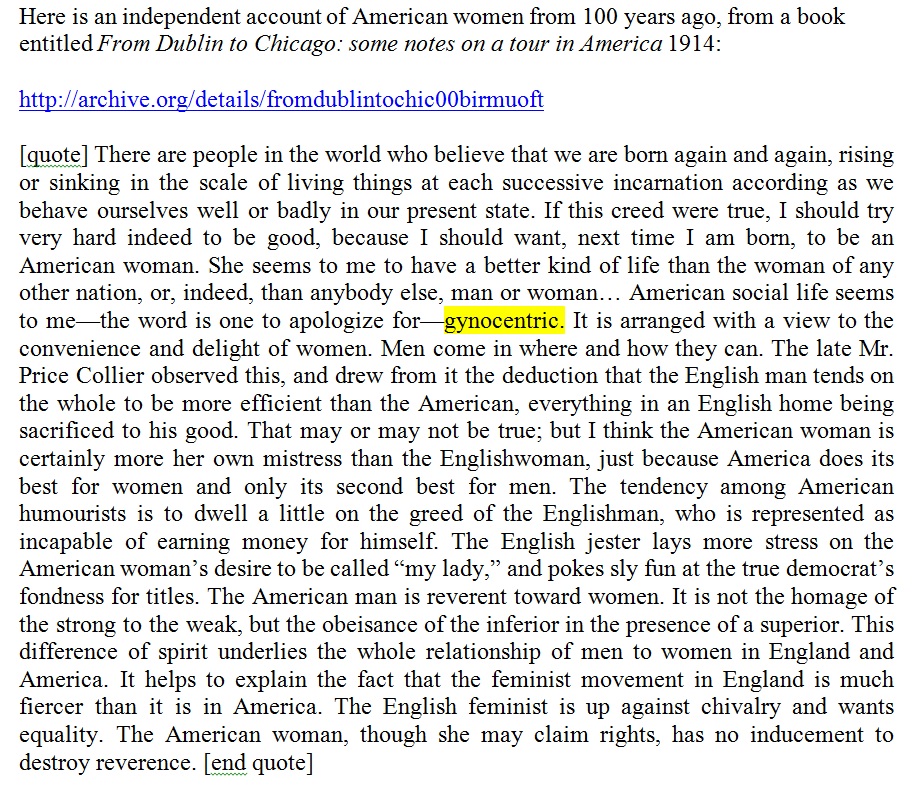
________________________________________________________
Gynocentrism continued to be used throughout the nineteenth century and into the present with a stable meaning of female centered, especially to a culture so disposed wherein, “It is arranged with a view to the convenience and delight of women. Men come in where and how they can.” [1914 -see above]
The word is employed infrequently, perhaps due to the availability of simpler phrasings such as ‘woman centered’ or ‘female dominated.’ When employed it appears to be viewed by writers as a self-explanatory term not requiring further definition.
***
RELATED WORDS:
The following are a few early uses of the words Gynarchy, Gynocracy, Gynæcocracy, Gynocrat, and Gyneolatry which are employed variously to refer to female power or hegemony in political, social, family, or gender contexts. Note the mention from 1660 below in which gynarchy is used to refer to the gender context where the wife is not subject to, but rather superior to the husband. Similarly, gynocracy which is sometimes defined as “petticoat government” applies to both female dominance of the social order and to female dominance in gender relations; eg. individual men are referred to as “petticoat governed” (see petticoat government at bottom).
Gynarchy:
Gynæcocracy:
The following mention of gynæcocracy is from the volume;
An Universal Etymological English Dictionary printed in 1737
Note that gynæcocracy is defined as “Petticoat Government”
From the Dictionary of the English Language 1755
Gynocracy:
Gynocracy in ‘Letters to and from Jonathan Swift’ printed in 1741.
Note again the reference to Petticoat Government
This mention from the Dictionary of Arts and Sciences from 1763.
This one from ‘The Gentleman’s Magazine’ of 1838.
Newspaper article ‘A Dethroned Tyrant’ of 1902.
Gyneolatry:
Book Chat, Volumes 3-4 (Brentano Bros., 1888)

The Life and Works of Friedrich Schiller (H. Holt, 1901)

The Athenæum, vol 2 (British Periodicals Limited, 1909)

Zones of the spirit: a book of thoughts (G.P. Putnam, 1913)
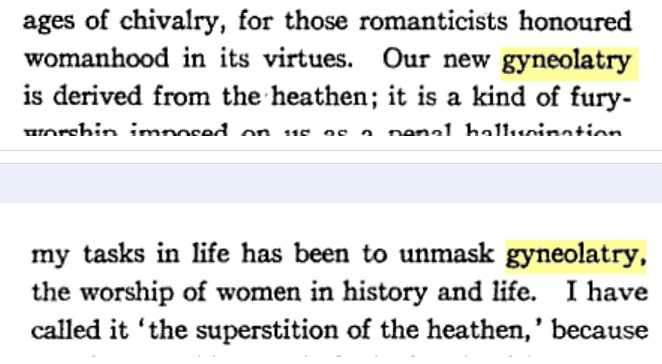
The Collected Works, Volume 1 (Oxford University Press, H. Milford, 1924)

Oxford Dictionary entry for Gyniolatry
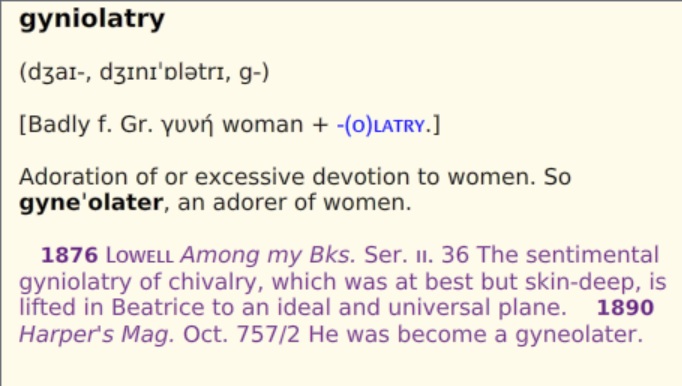
Petticoat Government:
